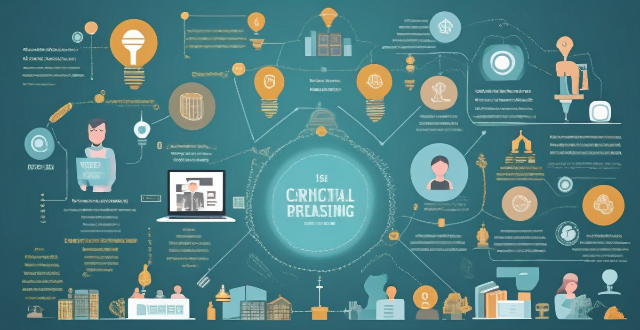Education is crucial for preparing individuals for future careers by developing technical and soft skills, fostering critical thinking, promoting lifelong learning, providing career guidance, offering networking opportunities, allowing for practical experience, broadening global perspectives, and contributing to personal development.

The Role of Education in Preparing Individuals for Future Careers
Education plays a pivotal role in shaping individuals for their future careers. It is not just about acquiring knowledge and skills, but also about developing critical thinking, problem-solving abilities, and adaptability to change. This preparation is crucial in an era where technology is rapidly evolving and job markets are continuously shifting.
Development of Skill Sets
Technical Skills
Education provides the foundation for acquiring technical skills that are essential for many professions. These skills can range from:
- Computer programming
- Data analysis
- Scientific research methods
- Engineering design principles
Soft Skills
Equally important are soft skills, which include:
- Communication: Being able to articulate ideas effectively, both verbally and in writing.
- Teamwork: Learning to collaborate with others towards a common goal.
- Leadership: Developing the ability to guide and motivate a team.
- Adaptability: Becoming comfortable with change and learning to thrive in dynamic environments.
Critical Thinking and Problem Solving
Education fosters critical thinking by encouraging students to question information, analyze situations, and synthesize knowledge. This is vital for solving complex problems that professionals may encounter in their careers.
Lifelong Learning
The concept of lifelong learning is emphasized in modern education systems. As technology advances and industries evolve, continuous learning becomes necessary to stay relevant in one's field. Education instills this mindset by:
- Teaching how to learn independently
- Providing resources for self-education
- Encouraging curiosity and exploration
Career Guidance and Awareness
Many educational institutions offer career guidance services that help students understand various professions and make informed decisions about their future. This includes:
- Career counseling sessions
- Workshops on resume building and interview skills
- Information about different industries and job opportunities
Networking Opportunities
Schools and universities often serve as hubs for networking, connecting students with professionals, alumni, and industry experts. These connections can lead to internships, mentorships, and eventually job opportunities.
Experience and Application
Hands-on experiences such as internships, apprenticeships, and practical projects allow students to apply theoretical knowledge in real-world settings. This practical application is invaluable when entering the workforce.
Global Perspective
In a globalized economy, education helps develop a global perspective by exposing students to diverse cultures, languages, and ways of thinking. This broadens their understanding and prepares them for working in international contexts.
Personal Development
Beyond professional skills, education contributes to personal growth by:
- Building confidence and self-esteem
- Encouraging creativity and innovation
- Promoting ethical values and social responsibility
In conclusion, education is not just about obtaining a degree or certificate; it is a comprehensive process that prepares individuals holistically for their future careers. It equips them with the necessary skill sets, fosters critical thinking, promotes lifelong learning, provides career guidance, offers networking opportunities, allows for practical experience, broadens global perspectives, and contributes to personal development.